Trump country: why Democratic strongholds are turning red
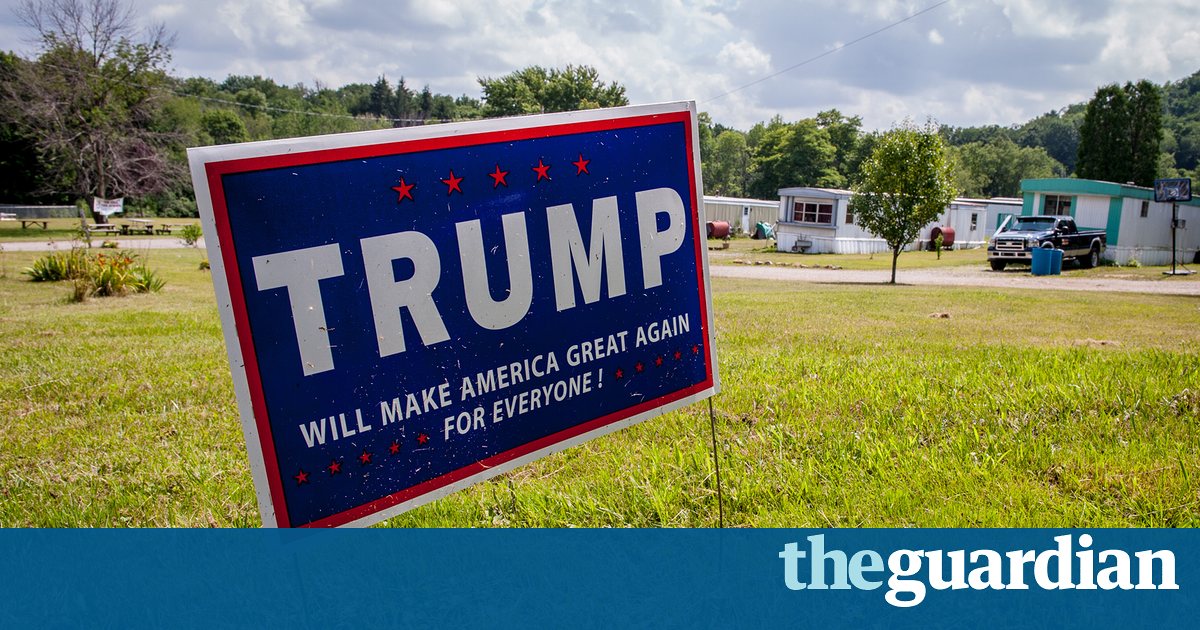
Donald Trump is finding support in traditional Democratic strongholds in Appalachia. Who are these voters, and what does Trump represent to them?
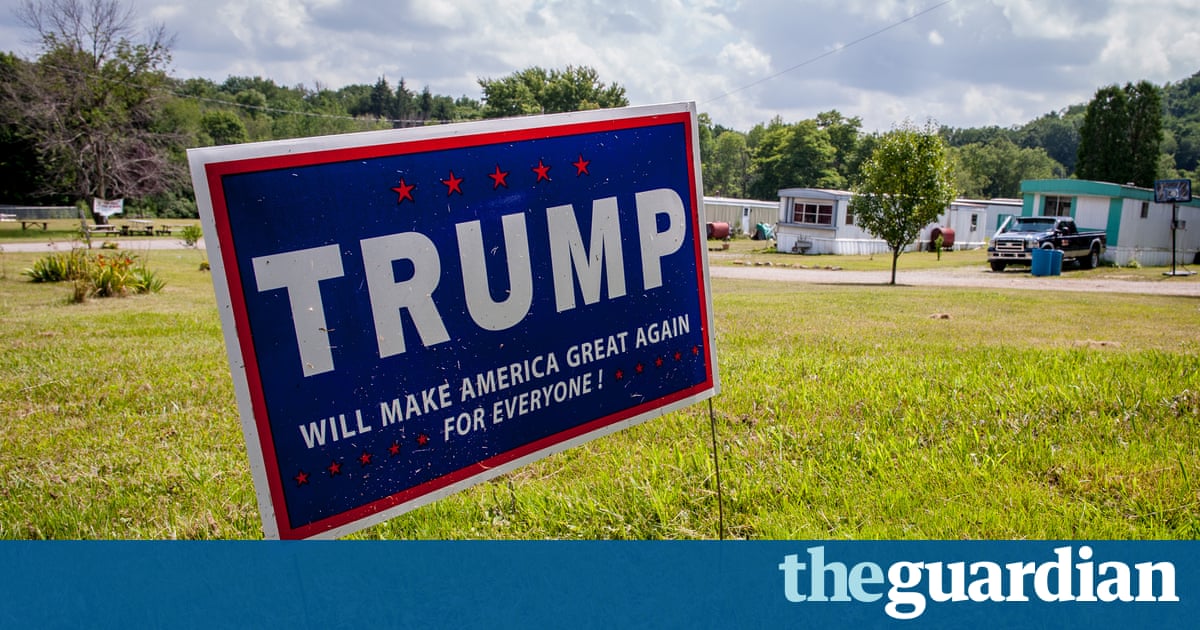
In the Republican primaries this spring, Donald Trump won sweeping victories in Appalachia. In a region that includes parts of 13 states and has a distinct cultural and demographic identity, the New York billionaire won all but 16 of 420 counties.
I was intrigued. I wanted to meet Trump supporters, to explore why they had cast their lot for him, and to find out what he represented to them. And so I travelled though parts of West Virginia, the Ohio Valley, the Pittsburgh area and the coal country of eastern Pennsylvania.
Whether Trump wins or loses against Hillary Clinton on 8 November, the so-called Trump voters I met, and thousands more like them, will continue to be a significant factor in American politics.
John Selzer, Marietta, Ohio
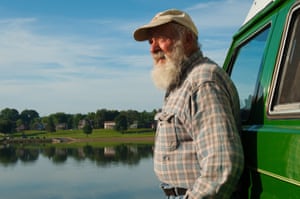
John Selzer, 74, is a retired brick mason living in Washington County, in south-eastern Ohio. Thanks to hard work, he said, he was able to build a successful construction company, producing brickwork known for its artful and original design. In summer, he and his wife, Eileen, like to travel in their 1983 Volkswagen Westfalia (Vanagon) camper, shown here on the banks of the Ohio river.
Selzer said he loved Trump because Trump was doing something he didnt have to do, and had the money to back it up.
The reason I like him, Selzer said, is that he is a no-nonsense individual. Hes got his life together. He wants to get the country out of the hole that its in.
Many people get a free ride from government programs, Selzer added, though he had always had to work hard to get anywhere. He always gave his customers a break on the work he did, he said, because he wanted repeat business.
Anthony Vendetti, Allegheny County, Pennsylvania
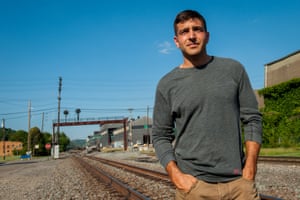
Vendetti works as a chemical engineer at a steel plant owned by Allegheny Technologies, producing specialty steel and super-alloys for the aerospace, defense and oil and gas markets.
Vendetti studied engineering at Johns Hopkins University and returned to Pittsburgh to work in an industry which has long employed members of his family. With the market for speciality steel currently soft, however, ATI recently laid off 30% of its workforce.
There is illegal dumping going on, with steel from China, Vendetti said. ATI just won a trade case over it. If the government can help on that, we shouldnt have to do it all by ourselves. We should be stronger it would make us stronger.
He conceded that Trump was not his first choice and said he had been more drawn to Rand Paul, a Libertarian Kentucky senator, and Ted Cruz, a hardline conservative from Texas. But, he said, Trumps greatest appeal lay in his not being part of the Washington political elite.
Trump is not a career politician, he said. He is an outsider. He funded his own campaign. I wanted someone from outside Washington to manage the country. He is one of the better business leaders that I could have voted for.
Anthony Mickey, Jefferson County, Ohio
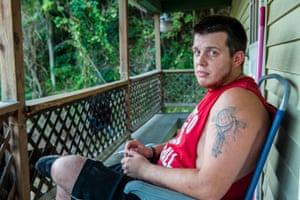
Anthony Mickey served for three and a half years as a combat engineer in the US army and was then honorably discharged, due to an injury. A self-described conservative activist, he follows the presidential election with great interest.
He pointed to a shuttered steel mill just a few hundred yards from his apartment building, and said: Production of steel here in Mingo Junction was huge. It produced lots of jobs. Now that the steel mill is shut down, people have to travel elsewhere to work. Its a ghost town.
Proudly displaying a Trump sign on his porch, he said the billionaire would create jobs and make life easier. He can relate to people who struggle, he said.
Dr Antonio Ripepi, head of surgery, Pittsburgh, Pennsylvania
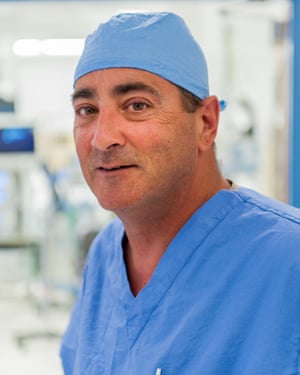
Ripepi is third-generation Italian American and a lifelong resident of western Pennsylvania. He works as a surgeon in a major Pittsburgh hospital, specializing in minimally invasive surgery, surgical endoscopy and gastrointestinal surgery.
A father of four children aged nine to 13, his political outlook is colored by his familys immigrant background.
People moved here [from Europe] so that their children could have a better life, he said. I am tremendously worried about what my children will inherit from this world, from this [Democratic] political party that has been running our country for too long. Thats my fear, and I think it is the fear of a lot of people like me.
Ripepi would have preferred John Kasich as the Republican nominee, because he sees the Ohio governor as more fiscally conservative. He will vote for Trump, he said, because of the alternative.
[Hillary] Clinton has always held herself above the law, he said. The most recent stuff that came out [about her use of a private email server while secretary of state], the FBI said she was wrong but they didnt indict her. If I did that, I would be in jail. This is not about a woman. This is about a political way of life.
He added: Despite the fact Donald Trump and I are so far apart on our values, I cannot continue to support or vote for the established liberal party.
Brenda Miller, pharmacy worker, Luzerne County, Pennsylvania
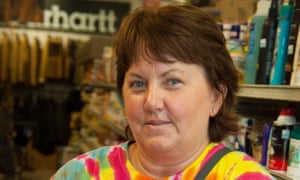
A mother of four, Miller works in a mom-and-pop pharmacy in Lehman Township and knows about economic challenges. In March, her husband was laid off from the coal mines near Hazeltown. He was able to find a new job.
Miller described herself as a born and raised Democrat who in 2008 wrote in Hillary Clinton, because she wanted a woman in the Oval Office. It was our time, she thought. But she didnt vote in 2012.
I was disgusted, she said. I couldnt believe they wanted Obama for a second time.
This year, she said, she was planning to vote for Trump. In the primary, he got 77.4% of the vote in Luzerne County. We just need a new person, she said. It has been the Bushes, the Clintons, I think we need a fresh start.
Robert Katrainak, meat cutter, Luzerne County, Pennsylvania
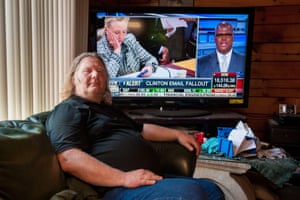
Describing himself as a lifelong Democrat who voted for Barack Obama twice, Katrainak said Trump would get his vote this year.
I think Trump is getting a lot of support because Bill Clinton started Nafta, he said, referring to a controversial trade agreement. I used to work for a company called Carter Footwear. I was a union steward. They passed Nafta, and three weeks later, there were 249 people without jobs. People that worked for Carter Footwear for 20 to 30 years didnt have anywhere to go.
Katrainiak spent $350 to have an illuminated sign made and installed on his property, by the highway. It reads: VOTE Donald Trump. BEAT Crooked Hillary.
People love my sign, he said. People always honk their horns when they pass.
Elson See, retired farmer, Hampshire County, West Virginia
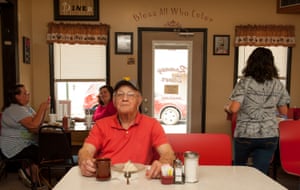
Known to other patrons at Shirleys Diner only by his nickname, Buck, See is a local celebrity. His long life has been chronicled in a biography, An Uncommon Man, which covers his humble beginnings on a small farm, military service in Germany toward the end of the second world war, and a struggle with a crippling illness.
People in West Virginia, he said, tend to vote by party. It has been that way since the 1930s, when most people voted Democratic, but: People are getting tired of it. They are going for the Republican this year.
He blamed Barack Obama for shutting down jobs in the coal industry. When they shut down the coal fields, they shut down all of eastern West Virginia, he said. And people are part of that.
Sydney Gore, nursing student, Grafton, West Virginia

Born and raised in a coal-mining community in Logan County, in the southern part of West Virginia, the 18-year-old came to Morgantown to study nursing at the University of West Virginia. During the summer, she worked as a waitress at Jerrys Restaurant in nearby Grafton.
Gore said there were no jobs in Logan County. Her father started working in the coal mines at age 14, she said. He is now 45 and out of work.
After Clinton made a public statement during the primary about putting coal companies out of business, Gore said, voting for the Democrat was out of the question. She plans to vote for Trump.